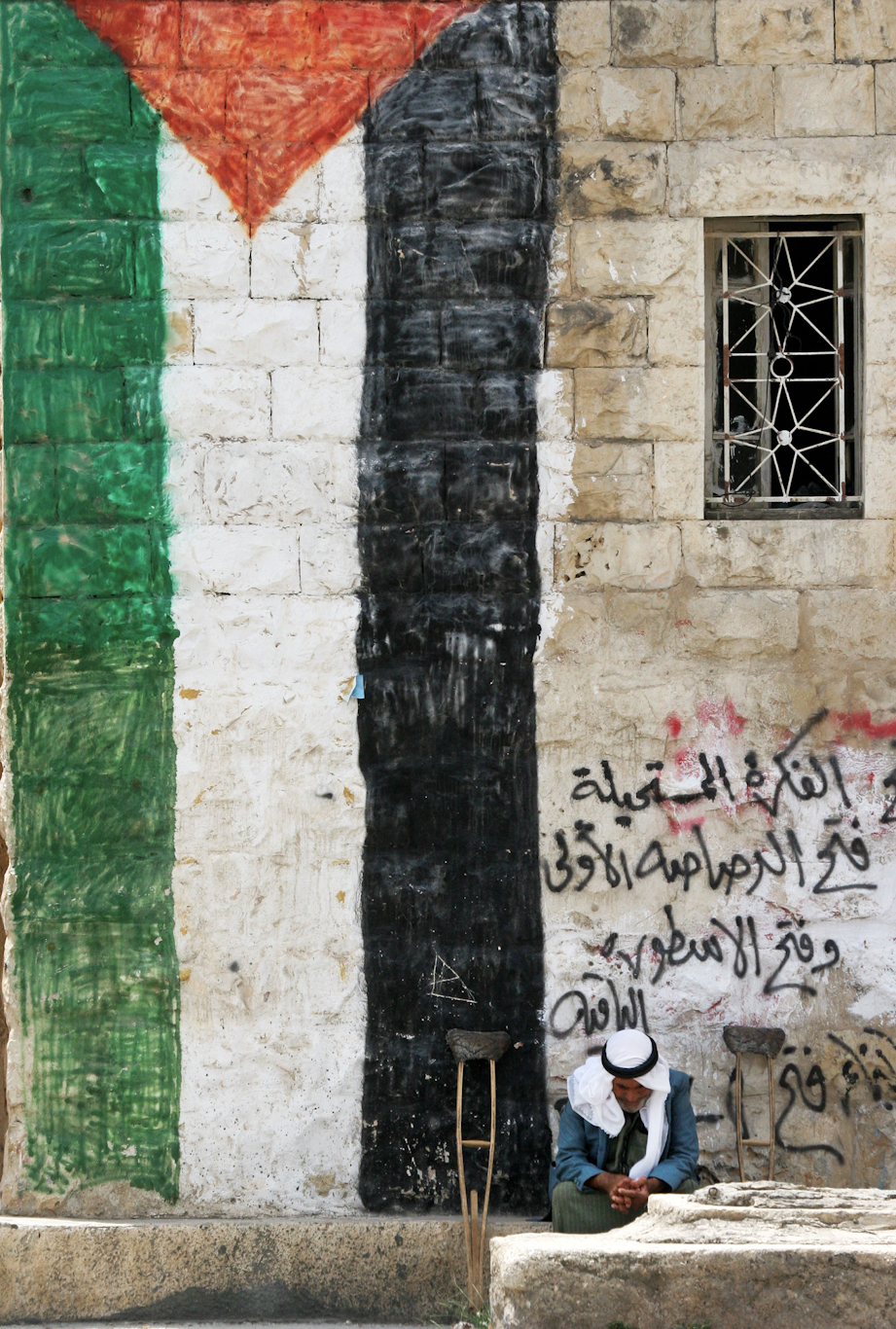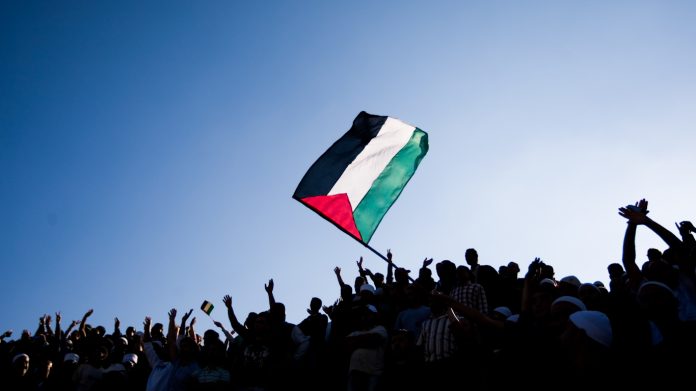It is a new era in Palestine. This new era is taking shape before our very eyes, through the blood, tears and sacrifices of a brave generation that is fighting on two fronts – against the Israeli military occupation, on the one hand, and collaborating Palestinians masquerading as a ‘leadership,’ on the other.
But how do we, in Palestine solidarity communities around the world, respond to the changes underway, to the new language and to the actual unity – wihdat al-Sahat – which are reanimating the Palestinian body politic?
First, I believe that we must insist on the centrality of the Palestinian voice to any solidarity action pertaining to Palestinian freedom anywhere.
Not any ‘Palestinian voice’ suffices, however; only voices that truly epitomize and capture the aspiration of the Palestinian people, voices that do not speak factional language or represent powerful classes with financial and other interests.
Second, solidarity groups, especially in the West, must know how and when, if at all, to engage with smear campaigns and fraudulent ‘dialogues’ on multi-faithism, racism and anti-Semitism.
This cannot be the centerpiece of conversations on Palestine or the solidarity movement. Numerous experiences in the past have taught us that allocating most of our energies to fight smear campaigns is a losing battle, which will ultimately have little impact on raising awareness of the struggle for justice in Palestine itself or the championing of the Palestinian cause.
Indeed, the main task of solidarity is just that – solidarity, as in adopting and advocating moral positions with the hope of achieving future political shifts in support of oppressed and/or freedom-seeking peoples in Palestine and anywhere injustices may be found.
Third, we must remember that solidarity is not speaking on behalf of anyone; rather, it is the creation of spaces and platforms and the navigation of margins that would allow others to represent their own struggles – while rendering and advocating these positions in one’s own local and national settings.
In other words, it is the localization of international struggles. It is doing our part to ensure our local representatives, regional/state parliaments and, ultimately, national governments shift their position from supporting Israeli apartheid in Palestine to adopting positions that are consistent, partly or wholly, with the aspirations of the Palestinian people.
How to achieve this differs from one political and social context to another. Local activists must assess their own surroundings and opportunities and make that decision for themselves.

Fourth, I believe that a foundational step in any successful advocacy campaign must always start with enlarging solidarity circles to include workers’ unions, student and religious groups and people from all walks of life and backgrounds to collectively serve as a strong base for effective political advocacy.
Fifth, for organic and effective solidarity to flourish, activists must avoid playing the role of judges and should confine their position on the type of collective struggle or resistance chosen by the Palestinian people to that of mere personal position. In other words, solidarity cannot be pre-conditioned.
Frankly, this is more relevant in the West than in the Global South. Since the latter category has much in common with Palestinians in terms of shared anti-colonial and anti-apartheid struggles, they can guide Palestinians in terms of what works and what does not.
However, those in the West, many of whom are direct beneficiaries of colonialism, imperialism and apartheid, must simply take responsibility for that sordid past, by holding their governments accountable for the present. Past crimes cannot be undone, but their harmful impact can be challenged and, indeed, through concerted efforts, even reversed.
Sixth, we must be wary of self-seeking activism. There are those, even within the Palestine community, who try to use international solidarity for political gains, factional rivalry and the like.
To prevent this, solidarity groups must adhere to a certain degree of democratic process to liberate our communities from the influence of individuals with personal agendas and to accentuate the role of the collective.
Indeed, all solidarity compasses must constantly and directly point to the collective struggle of the Palestinian people in Palestine and Palestinian refugee communities anywhere else in the world.
Seventh, intersectionality is key. Intersectionality is a strategy and can be a winning strategy if utilized correctly.
Of course, morality lies at the heart of intersectional solidarity, but we must be careful not to insist on imposing our unique moral values, which are driven by distinctive cultural, political, social, historical and even religious priorities and experiences, on everyone else if we truly want to create a global movement for Palestine.
For illustration, since identity politics was not as predominant in the past as it is today, past intersectional struggles for the liberation of many countries in the Global South – mostly among nations in the Global South – did not set pre-conditions that all these nations had to adhere, for example, to a social code that is acceptable by all.
Palestine must not be subjected to any kind of insistence on global conformity to a single set of ideas, ideologies or self-definitions.
The recent success of the BDS movement can be, in part, attributed to its appeal as a global movement advocating basic, universal human rights such as equality, freedom, justice and so on, for all Palestinians. It has done so while tailoring its messages and language to fit historical, political and even social frames of reference to many social and political settings.
And, finally, we are at the cusp of a major transition in Palestine; a new generation is trying to take the helm of the Palestinian cause. They have earned this right through their sacrifices, courage and unified action.
We must make the right choice of joining them and abandon old, tired and cliched references to a bygone era of Oslo, the peace process and all the rest.
It is time to listen to Palestinian voices and to voices that genuinely represent them, and support them through strategic mobilization, establishing of media alternatives, holding corporate media accountable and through direct political pressures.
This is how solidarity can translate well-intentioned, morally driven ideas into making a tangible difference on the ground.
All the creeks and streams of this success will eventually flow into a single, raging river, ultimately creating the paradigm shift that we have long fought for and desperately coveted.
Feature photo | Druze men wave Palestinians flags as they stand near the border fence between Israel and Syria as Syrian demonstrators marking the anniversary of the mass displacement of Palestinians surrounding Israel’s establishment in 1948 approach the village of Majdal Shams in the Golan Height, May 15, 2011. Ariel Schalit | AP
Dr. Ramzy Baroud is a journalist, author and the Editor of The Palestine Chronicle. He is the author of six books. His latest book, co-edited with Ilan Pappé, is ‘Our Vision for Liberation: Engaged Palestinian Leaders and Intellectuals Speak Out’. His other books include ‘My Father was a Freedom Fighter’ and ‘The Last Earth’. Baroud is a Non-resident Senior Research Fellow at the Center for Islam and Global Affairs (CIGA). His website is www.ramzybaroud.net
The post From Oslo to Unity: Reimagining Palestine Solidarity for the Future appeared first on MintPress News.

